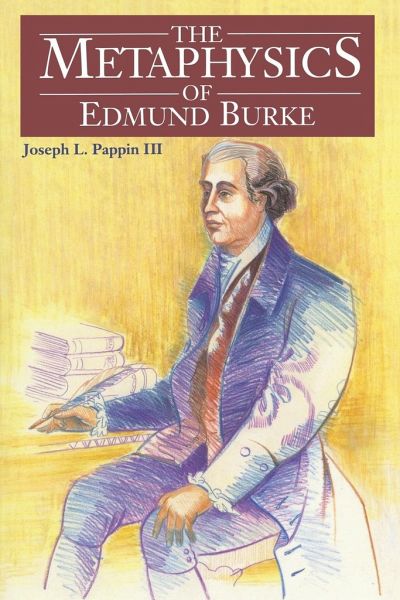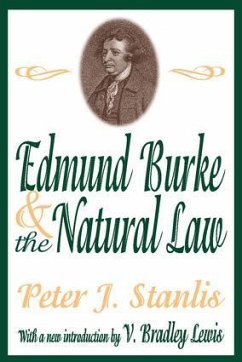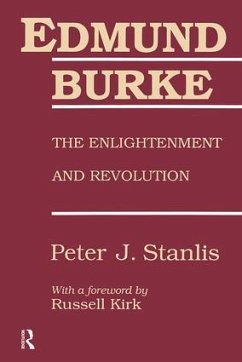
The Metaphysics of Edmund Burke
Versandkostenfrei!
Versandfertig in 1-2 Wochen
40,99 €
inkl. MwSt.

PAYBACK Punkte
20 °P sammeln!
The most recent commentators on Edmund Burke have renewed the charge that his political thought lacks the consistency and coherency necessary to even claim the status of a political philosophy and that he is indeed a "utilitarian." They mark him off as an "ideologist," a "rhetorician," and a "deliberate propagandist." Even Burke's Reflections on the Revolution in France, his most profound statement of a political philosophy, is regarded by some as a work of mere "persuasion," not "philosophy." All this occurs in spite of the seminal work of Stanlis, Canavan, and Wilkins, who in the 1950s and '...
The most recent commentators on Edmund Burke have renewed the charge that his political thought lacks the consistency and coherency necessary to even claim the status of a political philosophy and that he is indeed a "utilitarian." They mark him off as an "ideologist," a "rhetorician," and a "deliberate propagandist." Even Burke's Reflections on the Revolution in France, his most profound statement of a political philosophy, is regarded by some as a work of mere "persuasion," not "philosophy." All this occurs in spite of the seminal work of Stanlis, Canavan, and Wilkins, who in the 1950s and '60s, demonstrated the natural law foundations of Burke's politics. Burke revisionists, forced to acknowledge his use of the "natural law," label such use as a rhetorical means for utilitarian ends. Directly opposed to this renewed "utilitarian" interpretation of Burke is Joseph Pappin's work The Metaphysics of Edmund Burke. Not only does this work challenge the "utilitarian" view of Burke, it sets out, as not other work on Burke has attempted to do, "to make explicit the implicit metaphysical core of Burke's political thought." Pappin does this by examining both Burke's critics and Burke's own attack on a rationalist, ideologically inspired metaphysics. Drawing from Burke's vast writings, Pappin establishes as his goal "to demonstrate that Burke's political philosophy is grounded in a realist metaphysic, one that is basically consonant with the Aristotelian-Thomistic tradition." Does the author succeed? According to Francis Canavan, in his Foreword to this work, the "explanatory key" of a realist metaphysics grounding Burke's politics "is a key that fits the lock better than any other that scholars have offered." Canavan further holds that the author offers "us a more thorough analysis of Burke's understanding of God, the creation, nature, man, and society than has previously appeared."












